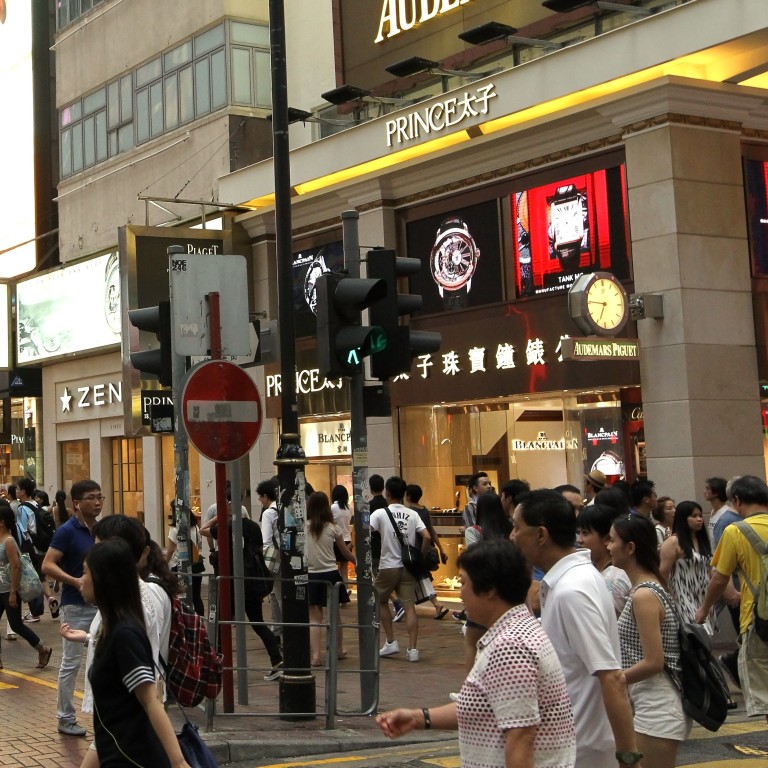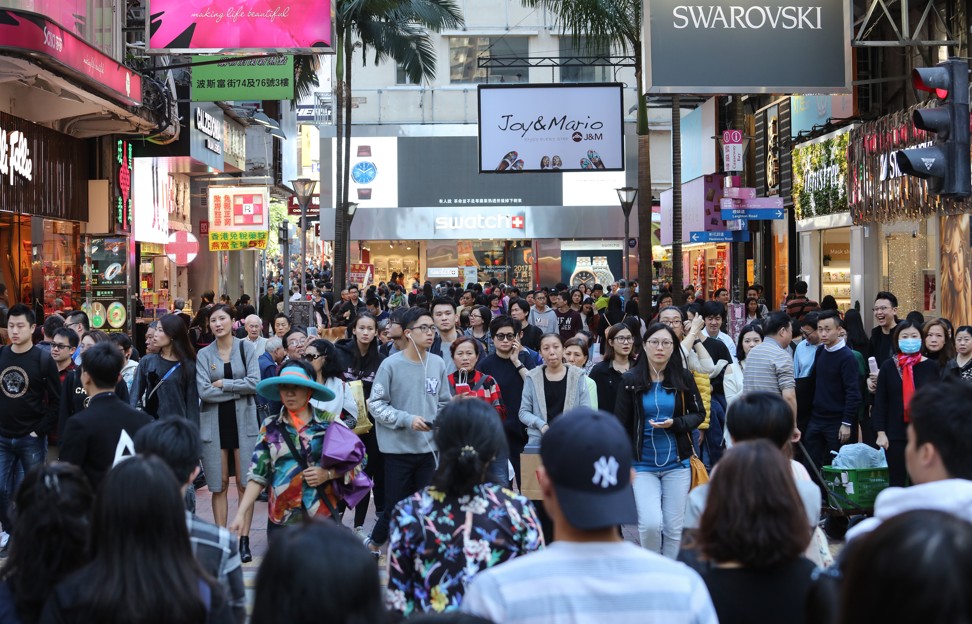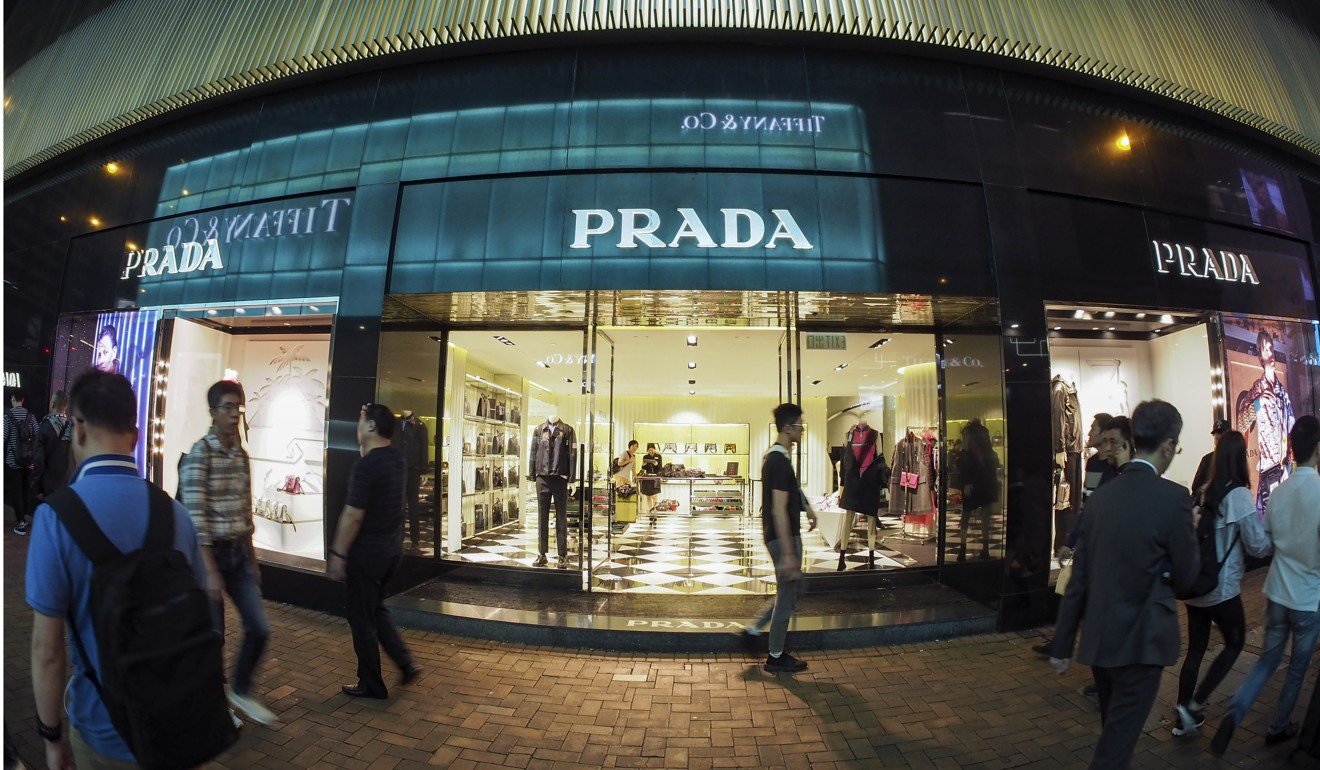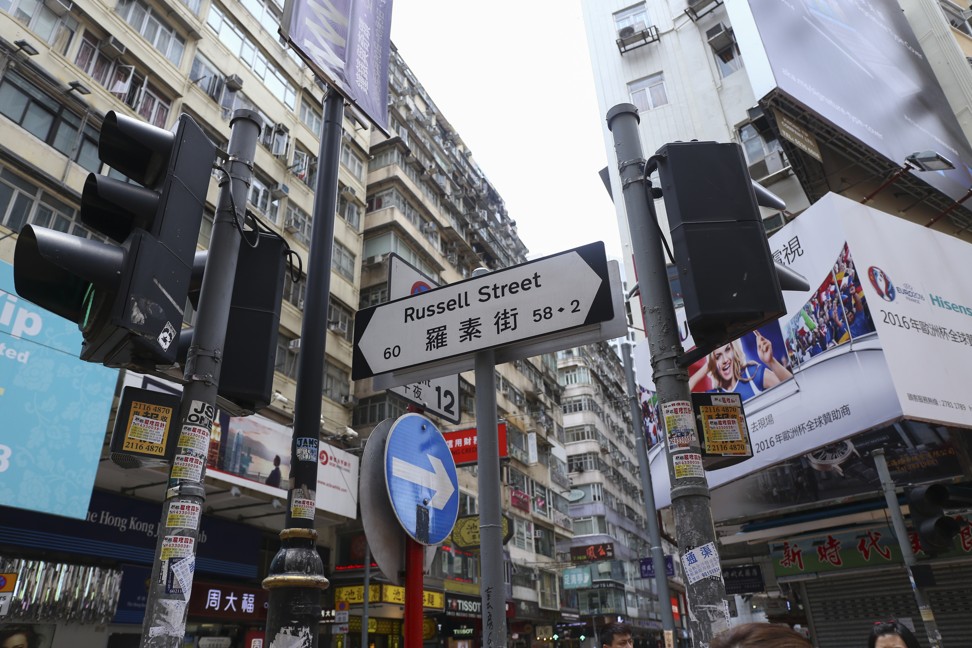
With Prada out, can Hong Kong’s Russell Street outshine Fifth Avenue or Champs-Élysées as the world’s costliest retail strip?
- Early Light Group, the landlord of Plaza 2000, is willing to cut rent by 44 per cent for the next tenant
- Market observers expect overall rents in Russell Street to fall by up to 30 per cent as social unrest has dampened the overall spending mood, particularly for luxury goods
Landlords in Hong Kong’s Russell Street, the most expensive shopping address on the planet, are likely to slash rents after fashion house Prada declared it would not renew the lease on its flagship store next year, according to market observers.
Analysts expect other landlords to follow suit, and warn there could even be an exodus of other global retailers from the famous shopping area in Causeway Bay.
They expect retail rents in the street – famous for its luxury goods – to tumble by as much as 30 per cent this year as leases come up for renewal. Customer footfall, already on the slide because of the rise of online shopping, has taken a further hit from the three months of often violent street rallies that have gripped Hong Kong.

She said spending on luxury goods dropped almost 30 per cent in 2018 from a peak five years earlier as tourists’ footfall declined and spending weakened. Landlords of shops catering to top-end retailers may face a similar magnitude of decline in terms of rent, she said.

Prada will close its 15,000-square foot (1,393 square metre) store, for which it pays HK$9 million (US$1.15 million) in monthly rent, when its seven-year lease expires in June 2020, according to its landlord Early Light Group.
Russell Street, where the flagship is, commanded an annual rent of US$2,800 per square foot per year, surpassing New York’s Fifth Avenue or the Avenue des Champs-Élysées in Paris as the world’s most expensive shopping strip, according to a 2012 report by Cushman & Wakefield.
Prada needs to sell 490 Metropolis bags a month, each costing HK$18,350, to cover its monthly rent.
Francis Choi Chee-ming, the Hong Kong billionaire known as the “Toy King” and owner of Early Light, is offering to cut the rent at Plaza 2000 by 44 per cent to HK$5 million, his spokesman said.
Spending on jewellery, watches and other valuable goods in Hong Kong was down 27 per cent to HK$85.3 billion last year from 2013, according to data from Census and Statistics Department.

Average shop rents in Russell Street will fall by about a fifth in the coming 12 months, said Edwin Lee, founder and chief executive of Bridgeway Prime Shop Fund Management.
“The [biggest problem] is that visitors are not coming to Hong Kong for shopping. This is why those with a lease in Russell Street that’s going to expire soon will not renew their contracts,” he said.
Now all eyes are on Italian luxury lingerie brand La Perla, which operates an 8,000 sq ft store spread over five levels on Russell Street.
The company had agreed to a monthly rent of about HK$7.5 million a month with the landlord Emperor International Holdings over a five-year term from September 2015 to September 2020. The two parties later agreed to a reduced monthly rent of HK$5 million from April 2017 to April 2018. It is not clear if there has been a change in rent since then.
Last year, La Perla had faced eviction from its flagship store over a rent dispute, but Donald Cheung, executive director of Emperor International, said that La Perla was paying rent on time.
Cheung said that his company had received requests from some tenants for a rent cut, but not from those on Russell Street.
Emperor International, the largest landlord in Russell Street, saw its rental income decline 4 per cent to HK$1.1 billion for the year ended March 2019.
Asked if there was any indication from La Perla to renew its lease, he said there was still one year to go, and declined to disclose further details.
The Italian fashion house was yet to comment on the Post’s query on whether it intends to renew its lease for the flagship Hong Kong store.
But market observers are speculating that should La Perla decide not to extend its lease, it could trigger an exodus of global brands from the area.
JLL said there are 27 shops on this stretch, of which nearly half sell jewellery, seven are in the fashion and accessories business, four sell beauty and cosmetics and two retail medicines and health products as of the second quarter.
Bridgeway’s Lee said that rents here have fallen to HK$3,000 per sq ft from a peak of HK$4,000 per sq ft in 2013 when tourists from the mainland to Hong Kong were on the rise.
He said that the prestige of Causeway Bay has faded somewhat as the high-speed rail link connecting Hong Kong with the mainland and the Greater Bay Area scheme do no benefit the district, while the population of Hong Kong Island has also not grown.
“So we think Causeway Bay, particularly Russell Street, will trend downwards,” Lee said.


